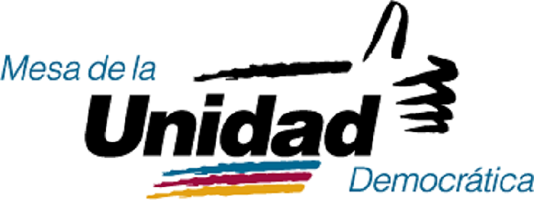Between Hugo Chavez being elected president of Venezuela in 1998 and his death in office in March 2013, political opposition to him failed.
Chavez decisively won five presidential elections. His margin of victory ranged from a height of nearly 26% in 2006 to a still very impressive low of nearly 11% in 2012.
Chavez’s resounding success was in part due to his popularity, but was also the result of weak opposition.
Current President Nicolas Maduro does not have the same levels of support as his predecessor. This has led many in the opposition to believe that the December 2015 parliamentary elections will finally result in victory.
It is estimated that around 70% of Venezuelans are dissatisfied with Maduro’s presidency, as people struggle to cope with a shrinking economy, shortages in basic goods and the second highest crime rate in the world.
Despite this, an opposition victory is by no means guaranteed. Like Maduro, they too seem to be lacking popular support.
The opposition to the ruling United Socialist Party of Venezuela – Partido Socialista Unido de Venezuela PSUV – is divided, unable to connect with the poorer sectors of society, and marred by its past.
The opposition is associated with two parties that ruled over Venezuelan politics between the 1950s and the 1990s.
The Venezuelan political elite established a representative democracy through the Punto Fijo Pact of 1958. This meant power was shared between two conservative parties: COPEI – Comité de Organización Política Electoral Independiente, (Independent Political Electoral Organization Committee), and AD – Acción Democrática, (Democratic Action) for the next 40 years.
The dominance of COPEI and AD resulted in discontent amongst smaller parties across the political spectrum and the political left had little representation. It also gave Chavez a clear enemy to campaign against.
This 40 year pact also made it easy for Chavez to highlight that a large sector of the population, namely the poor, had been disenfranchised.
As the opposition fought amongst itself, they continued to alienate many people, and Chavez and his party reigned supreme.
After successive defeats, the Venezuelan opposition decided to change how it played the political game.
Ahead of the 2010 parliamentary elections, the main opposition leaders aimed to stop the in-fighting that had played into Chavez’s hands and unite to maximize their chances of success and defeating the government.
To achieve this, a coalition of parties from across the political spectrum came together and created the Democratic Unity Roundtable – Mesa de la Unidad Democrática (MUD).
MUD backs a single candidate either for president or in each electoral district from amongst its member parties.
Although MUD has made some advances, winning 65 seats at the 2010 parliamentary elections and seeing its presidential candidate losing by only a margin of 1.49% in the 2013 presidential election won by Maduro after Hugo Chavez’s death, it has still failed to connect with the poorer sectors of society.
The Venezuelan opposition has historically been led by individuals from the wealthier sectors of society who are seen as being unable to understand the issues that the millions living in the barrios or city slums, have to live with.
MUD leaders do not seem so different from this traditional mould.
The presidential candidate running for MUD in the two elections since the forming of the coalition was Enrique Capriles Radoski, a lawyer from an upper class family. Despite attempts to distance himself from his wealthy image, Capriles Radoski has alienated many of the poor in Venezuela.
The other prominent leader in MUD has been Leopoldo López, who in September of 2015 was jailed for nearly 14 years for his role in violent protests against the government that took place in the first half of 2014.
López also comes from a wealthy family. He was educated in the United States and holds a master’s degree from Harvard.
Although supported by the middle classes, he has proved divisive amongst the poorer sectors of society and within MUD itself, with many considering the call to protest as counterproductive.
In an attempt to unite after differences over the 2014 protests and to connect with the poor, MUD brought in Jesus Torrealba to lead the coalition in September 2014.
Torrealba remains relatively unknown and overshadowed by the likes of Capriles Radoski and López. MUD is now trying to bring him to the forefront of the election campaign for the December 2015 parliamentary elections.
Unlike the other MUD figureheads, Torrealba, a former member of the Communist Party, comes from a poor part of the capital Caracas and has been quoted as saying that he is “from the barrio”.
Torrealba seems aware of the problems facing MUD and that there is a fear that if the opposition win things will simply go back to the days of political conservatism and disenfranchisement.
Torrealba has sought to address these concerns directly, stating that he does not want to go back to the days of conservative rule. He recently told Time Magazine that “a return to the past is neither desirable nor possible”. 
What remains to be seen is whether the electorate will believe this message and vote for MUD candidates.
Faced with an ever more unpopular president and an opposition that fails to inspire, some polls suggest that Venezuelans will turn to independent candidates.
The numbers suggest that this rise in support for independents coupled with a predicted decline in voter participation, which is considered to favour the party in power, could mean that even if MUD wins the most seats in the December elections that they will fall short of a majority.

